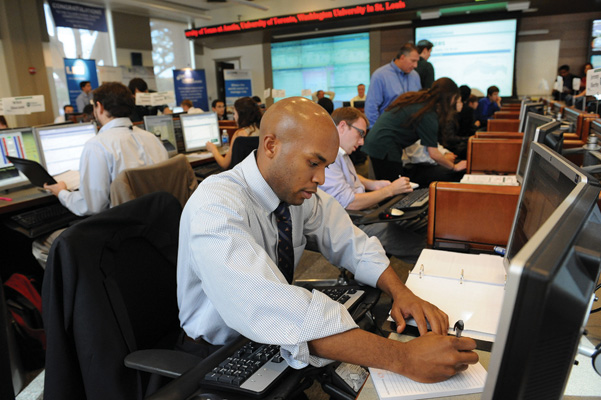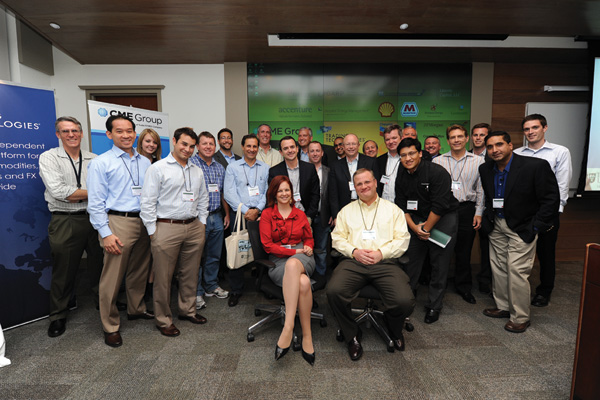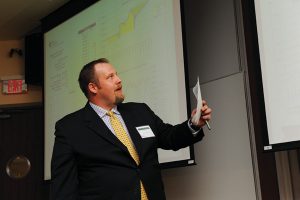
In just two years, the Tulane Energy Trading Competition has grown into one of the leading annual events for both students seeking careers in trading and energy executives seeking the best young talent.
Student traders from Rutgers, the University of Texas at Austin, Tulane and Northwestern took top honors at the 2010 Tulane Energy Trading Competition, but according to some participants, the biggest reward for participating in the competition wasn’t the cash prizes or professional trading products awarded to the winners. It was the chance to rub shoulders with an all-star lineup of industry professionals.
“You got to meet the people who actually do this for a living, and they got to see how you perform in real-world situations,” says Tulane MBA student Michael Grubbs, who placed fourth in the competition. “I met everybody from natural gas traders to industry executives to a scheduler at a refinery and got goodquality one-on-one contact with dozens of industry professionals. Hopefully, in the next few weeks, I’ll start getting some phone calls and we’ll see if we can turn this into a job offer.”
In just two years, the Tulane Energy Trading Competition has grown into one of the leading annual events for both students seeking careers in trading and energy executives seeking the best young talent. This year, 174 students from 33 universities took part in the remote round of the competition—more than twice the number of last year’s participants—and more than 40 industry executives attended the live final round and served as guest judges.
The final round took place on Oct. 23 in the Freeman School’s Trading Center. Over the course of one intense day, the top 28 students from the remote round put their skills to the test trading live natural gas futures and refinery crack spreads using a proprietary simulation that industry professionals call the most realistic energy-trading exercise available anywhere.
Tulane’s energy trading competition is unique for its emphasis on risk management and responsible trading. While other competitions determine prize winners solely on the basis of profits and losses, Tulane ranks participants according to risk-adjusted profit and loss and puts the ultimate decision in the hands of a panel of judges, industry experts charged with critically assessing the quality of the students’ strategies and how they handled the pressure.
“I wasn’t necessarily looking for the person who made the most money,” says Berney Aucoin, vice president with Sequent Energy Management, who served as one of this year’s judges. “I was looking for someone who made money but also managed risk accordingly and demonstrated the ability to critically think through situations they weren’t prepared for. Getting into the students’ heads and understanding their critical thinking process was really enlightening.”

Competition organizer Joe LeBlanc, seated, with some of the 40 energy and trading professionals who attended this year's competition.
Rutgers University student Rodrigo Polezel earned first place honors in the competition, followed by Robert Ettinger of the University of Texas at Austin and Alex Santos of Rutgers.
Each of the three top finishers received a prize package valued at nearly $100,000, including cash prizes ranging from $500 to $1,500, a one-year license for Thomson Reuters Eikon, a one-year license for LIM’s MIMIC and XMIM software, and a one-year license for the Imagine Trading System.
For finishing fourth and fifth in the competition, Grubbs and Northwestern University student Rory Sandstrom each received a one-year license for Thomson Reuters Eikon and LIM’s MIMIC and XMIM software.
The 2010 Tulane Energy Trading Competition was underwritten by CME Group and sponsored by Trading Technologies, Thomson Reuters, LIM, Imagine Software, Entergy, Global Association of Risk Professionals (GARP), Mirant, Sequent Energy and Accenture.


